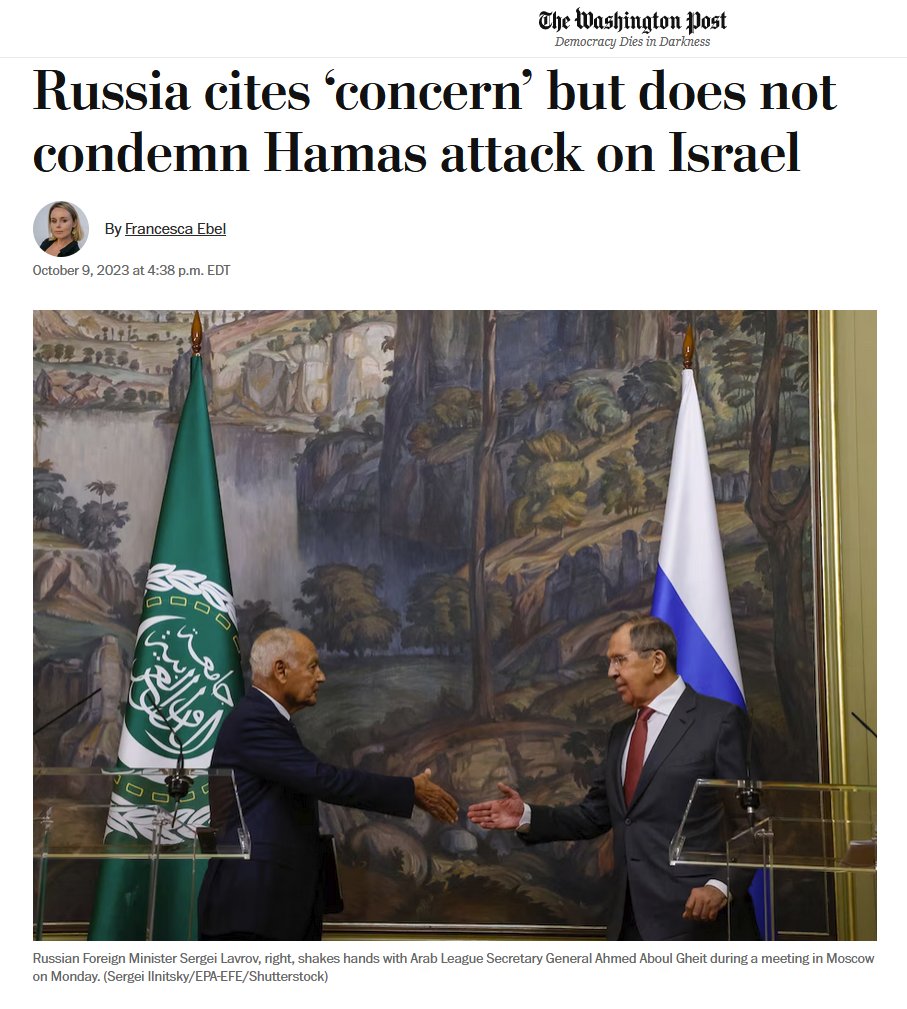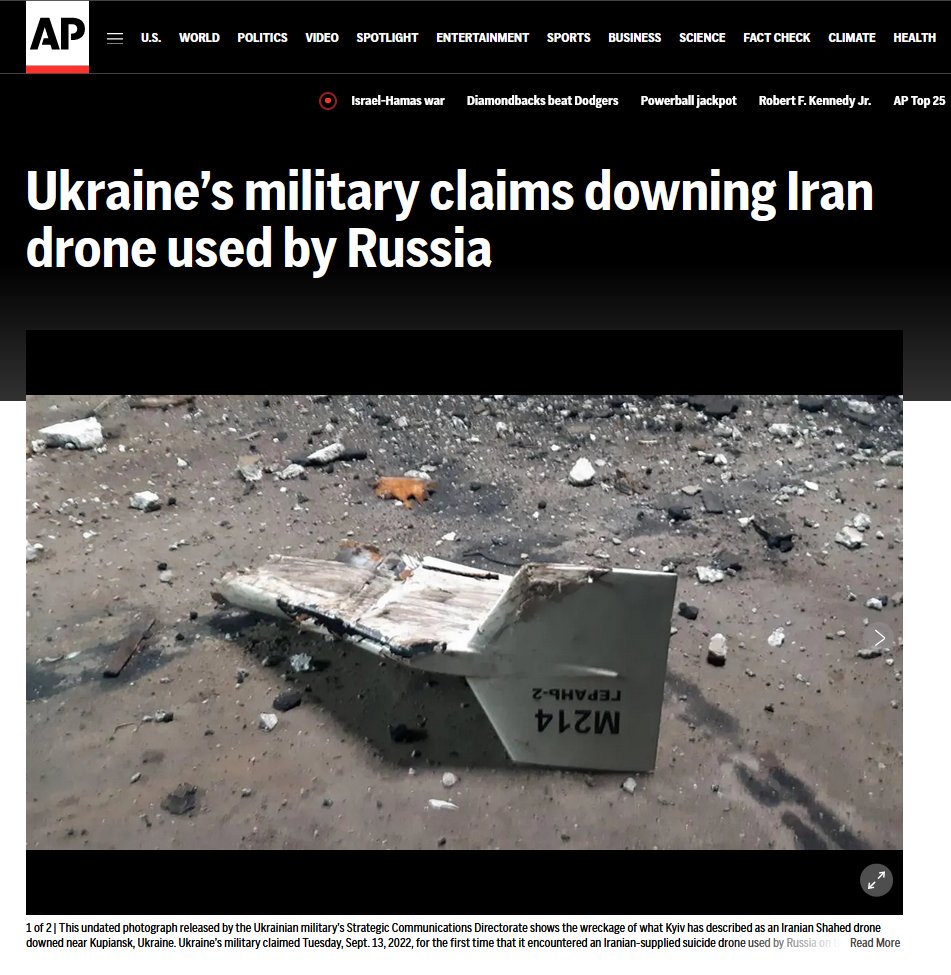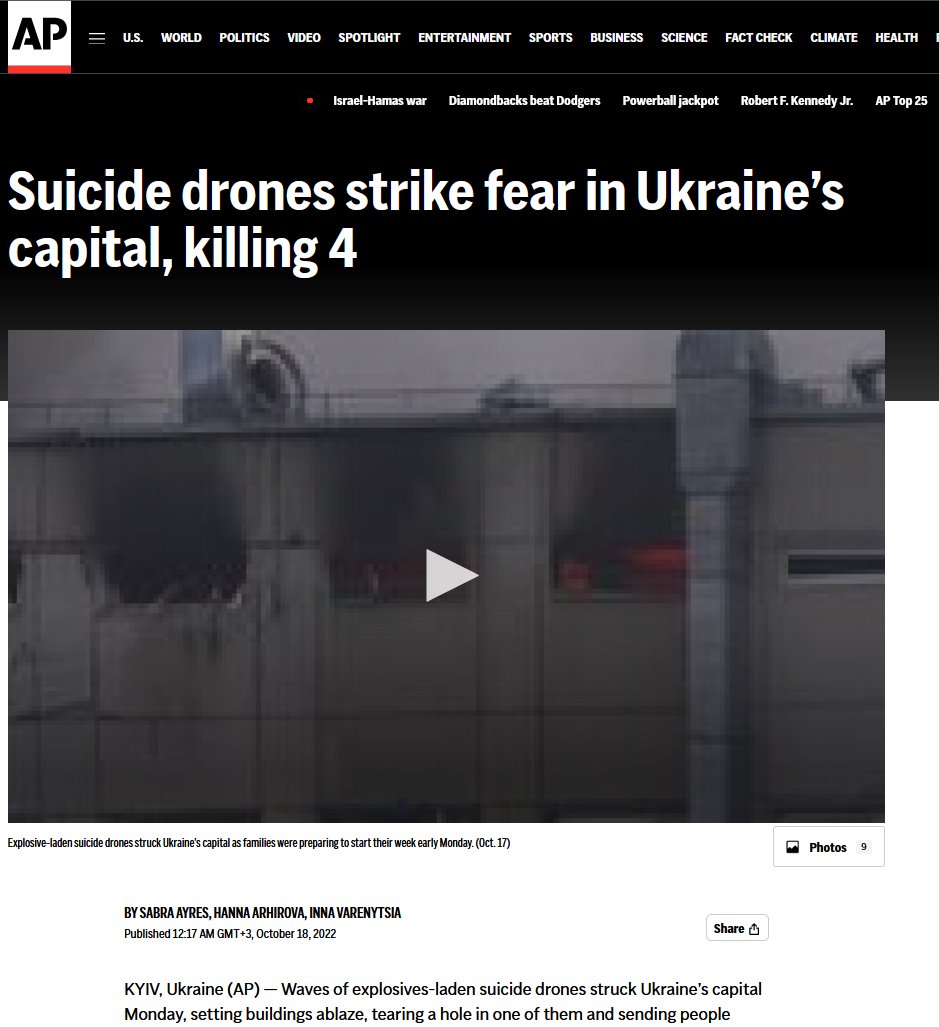In today's #vatniksoup, I'm going to talk about Russia's involvement in the Middle East politics. Countries like Iran have been assisting Russia in their genocidal war in Ukraine, and the Kremlin has also meddled with various extremist groups in the region.
1/18


1/18


Historically, Russia/USSR has been involved in numerous wars in the Middle East, invading Afghanistan for almost 10 years and recently helping Syria's authoritarian leader al-Assad to stay in power. In Syria, Russia was best-known for their brutal tactics against civilians.
2/18


2/18


But Russia has also been flirting with the militant groups in the region, including both Hamas and Hezbollah. Hamas is a Palestinian political and terrorist organization that governs one of the Palestinian territories, the Gaza Strip. On 7 Oct 2023, ...
3/18
3/18

...Hamas launched a terrorist operation against Israel, killing civilians and taking them as hostages. One of their targets was a music festival, where they massacred more than 260 people.
4/18
4/18

Russia has met Hamas leaders of several occasions, and Hamas sent high-level delegation to meet Russian officials early this year. After the attack, Russia "cited concern", but didn't condemn Hamas' terrorist attack. Russia does not consider Hamas a terrorist organization.
5/18


5/18


Hezbollah is a Lebanese political party and militant group that allegedly gets most of their funding from Iran. The organization has waged war against Israel and IDF on various occasions, including in the 2006 Lebanon War.
6/18
6/18

Along with countries like Algeria, China, Cuba, Iran, Venezuela and North Korea, Russia has refused to call Hezbollah a terrorist organization, and calls them a "legitimate socio-political force" instead.
7/18
7/18

Russia and Hezbollah have even fought together with al-Assad's troops in Syria. In 2018, they also smuggled oil together in order to evade economic sanctions set against al-Assad's regime.
8/18



8/18



Hezbollah has allegedly joined Hamas in their fight against Israel, and on 9 Oct 2023, they published a "promotional" video declaring war against the IDF.
9/18
9/18
Naturally, Iran is close to all these countries and organizations. According to US official, Iran pays Hezbollah around 700 million USD annually. Hezbollah has also been connected to cigarette and drug smuggling operations.
10/18


10/18


Hamas had allegedly received weapons and training from Iran, and intelligence officials have confirmed that Hamas received help from Iran in manufacturing over 4000 rockets and drones launched to Israel since 7 Oct 2023.
11/18


11/18


Iran-Russia relations go also way back, and the Soviet Union was the first state to recognize the Islamic Republic of Iran in 1979. In 1989, Iran made an arms deal with Soviet Union, and after the fall of USSR this collaboration continued.
12/18
12/18

In May 2007, Iran was invited to join the CSTO, a Russia-based organization to counter NATO, but they eventually decided against joining the treaty. In 2015, Putin lifted a ban on weapon sales to Iran and Russia delivered several S-300 missile systems to Iran and the...
13/18
13/18

...two countries agreed on another $10 billion deal that included helicopters, planes and artillery systems.
In 2022, Russian delegation visited Iran to observe drones manufactured by Iran. Initially, Iran downplayed the drone transfers, saying that it would not...
14/18


In 2022, Russian delegation visited Iran to observe drones manufactured by Iran. Initially, Iran downplayed the drone transfers, saying that it would not...
14/18


...supply any weapons to Russia and encouraged both Russia and Ukraine to seek a peaceful resolution. In Sep 2022, Ukrainian military claimed that it encountered Iranian-built suicide drones that were operated by the Russians.
15/18


15/18


In Oct 2022, Iran agreed to provide additional missiles and drones to Russia. In 2023, various media outlets have reported that Iran has been assisting Russia in building a suicide drone factory within its borders.
16/18
16/18

Among military targets, these drones have been used heavily against civilian targets and have cause massive civilian casualties in Ukraine.
17/18
17/18

To conclude: In Middle East, Russia has been flirting with authoritarian regimes like Syria and Iran. In addition, they've had close relations with terrorist and militia groups like Hamas and Hezbollah, further destabilizing the region.
18/18
18/18

• • •
Missing some Tweet in this thread? You can try to
force a refresh

































